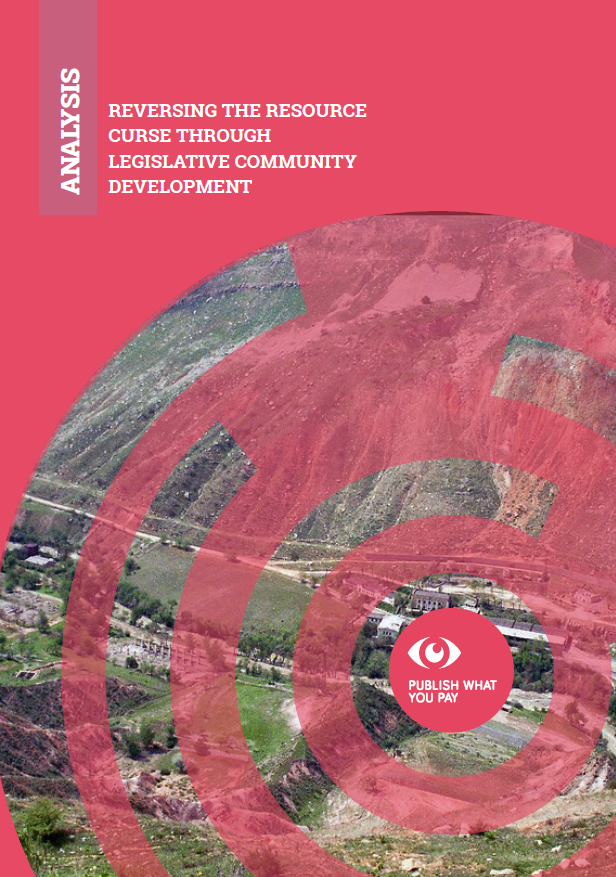Publish What You Pay – Congo welcomes the Extractive Industries Transparency Initiative Board Meeting taking place in Brazzaville from April 13th to 15th 2015. By giving the Republic of Congo the responsibility of organising this important meeting, the EITI Board Meeting acknowledges the efforts from the government in terms of transparency in the access of data from the extractive sector. It is worth mentioning the Republic of Congo was one of the first countries to issue the 2013 EITI report. However, Publish What You Pay – Congo has noted several shortcomings hampering a reel implementation, and, as a consequence, contradicting the political willingness for more transparency as shown by the authorities. This is why the Publish What You Pay Campaign in Congo would like to ask the Board Meeting to call on the government of the Republic of Congo to implement all the necessary reforms regarding the reinforcement of transparency mechanisms. Publish What You Pay – Congo asks to:
Strengthen the reliability of EITI statements
The report by the Bern Declaration on the contract between the Congolese oil refinery (CORAF) and the Swiss trader Philia, recently caused many reactions from the international and national opinion. For Publish What You Pay – Congo this inquiry mainly reveals inconsistencies in the EITI statements by the national oil company, the SNPC, regarding its CORAF branch. The report shows that the CORAF earned profits in 2013 through transactions operated by Philia. However, these profits were not recorded in the 2013 EITI statements. Publish What You Pay – Congo already expressed concerns regarding this question in a press release dated March 3rd, and asked the SNPC to give explanations. “Close sources to the CORAF” cited by medias confirmed that the contract with Philia helped the CORAF to earn profits. No satisfactory explanation was given by the SNPC to date.
Make trade agreements public and available
The CORAF-Philia inquiry also revealed suspicious details in the contract. Provisions that were endangering public funds, made Publish What You Pay – Congo question the management of those funds, and remind the importance of transparent procedures. The coalition is also asking for more information regarding the trade agreement with the Popular Republic of China, which obviously involves large amounts of revenues. The same questions remain as to the conditions in which de Congolese government and the ENI company reached an agreement regarding the power plants in Djéno and Côte Matève.
The 2013 EITI report does mention these agreements and their main purposes, but does not provide any detailed information (amounts, interest rate etc.). Such contextual information would help comply to the EITI criteria n°3.
Put an end to the maritime tax exception
The maritime tax is still unilaterally declared by the companies, since the Congolese maritime trade company (SOCOTRAM) refuses to declare what it collects as payments of this tax, arguing that it does not collect it from extractive companies but from the ship-owners. In fact, ship-owners are the ones who pay the tax after billing the companies for it. Through several agreements with the government though, companies recover this amount as operational costs. This is why one can consider that the payment of this tax does impact the oil revenues of the country, and therefore should be integrated into the EITI perimeter.
Implement the EITI reports recommendations
Annual EITI reports deliver various recommendations, which often are similar. This shows difficulties to reform governance, although the EITI should be a driving force for public reforms strengthening transparency, responsibility and accountability in a sustainable way. The weak implementation of the recommendations is real hurdle to the EITI process, which aims at fighting poverty. The EITI process in Congo must do more than issuing reports and be used to actually strengthening accountability in the management of public affairs.
Consider the use of EITI data
Bearing in mind that the main purpose of the EITI process in Congo is the responsible and sustainable use of the revenues from the exploitation of the natural resources in order to help the social and economic development of the country, Publish What You Pay – Congo would like to draw attention to the use of the data made public through the EITI process. This seems particularly important in the current context of tightened public revenues as a consequence of falling oil prices. Publish What You Pay – Congo believes the EITI Board Meeting is entitled to encourage governments to extend transparency and accountability to public expenses mechanisms.
Put the Fiscal Transparency and Responsibility Law to vote
A law translating the EITI obligations into legal obligations and strengthening accountability mechanisms in the collect and execution of the budget, is currently being drafted. Although it was a promise from 2010, the draft has not been presented to the Parliament yet.
Implement the commitments in terms of a transparent management of budgetary surpluses
The Republic of Congo committed in 2006 to deposit annual budgetary surpluses at the Central African States Bank, in an account that was to be audited every year. To date, Publish What You Pay – Congo estimates that 4 207 billion FCFA could have been placed in this account since 2008. However, no figure is available as no audit has ever been conducted. While the Republic of Congo is currently struggling to present and execute a realistic and credible budget for 2015, these savings must be used in the most responsible and efficient way possible.
“Maintaining complying standards requires demanding commitments and practices from the government, in order to go beyond transparency. The aim is to use the EITI as a stepping stone towards a better governance, to help Congolese people out of poverty”, said Christian Mounzeo, Coordinator of Publish What You Pay – Congo.










